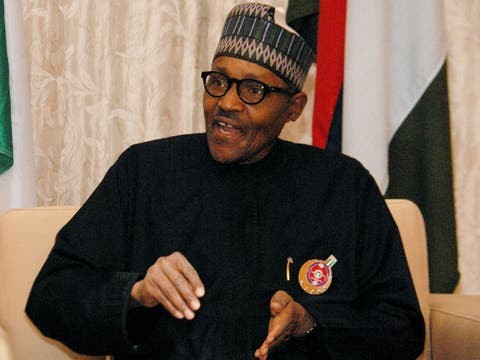I Borrow to Fix Infrastructure – Buhari
For the first time yesterday, President Muhammadu Buhari defended borrowing by his administration, saying he borrows to fix roads, rail and attract investments.
Speaking at a virtual meeting with members of the Presidential Economic Advisory Council (PEAC), Buhari said his government was borrowing money in the interest of the country to address the infrastructure deficit.
After the meeting, the council listed steps the government needs to take in its vision to lift 100 million Nigerians from poverty.
The council Chairman, Professor Doyin Salami, while speaking on behalf of his colleagues, said they would come up with a policy paper to assist the government in achieving the goals.
A statement by a presidential spokesman, Malam Garba Shehu, said the president told the meeting that the country must fix roads and save lives from perishing in road accidents.
“We have so many challenges with infrastructure. We just have to take loans to do roads, rail and power, so that investors will find us attractive and come here to put their money,’’ he was quoted as saying.
According to the statement, Buhari noted that the country’s failure to provide infrastructure for effective transportation had robbed the country of its well-deserved status as well as the West African hub for air cargo transportation and trans-shipment of goods.
It also said Buhari spoke on economic challenges caused by the collapse of the oil market and how the country was left with no option than to abide by the reduced oil production quota as allocated by the Organisation of the Petroleum Exporting Countries (OPEC).
He said the developments had put Nigeria in a difficult situation because the reduced oil production quota had also reduced earnings.
“We have to accept that decision; otherwise they (Middle-East producers) can flood the market and make the product unviable. So, we have cooperated with what we get. With oil, we are in a difficult situation. The politics of oil is that the less you produce, the less you earn,” he said.
Buhari also spoke on the output of investment in agriculture, pointing out that it has reduced the level of joblessness and poverty.
“For us to bounce back to productivity, especially in agriculture, the unemployed with many of them uneducated had to be persuaded to go into agriculture.
‘‘If we hadn’t gone back to the lands, we would have been in trouble by now. That is why we virtually stopped the importation of food thereby saving jobs and foreign exchange,” he said.
Shehu said the president narrated how the outbreak of COVID-19 led to the government’s policies which hiked electricity tariff and removed fuel subsidy.
He said the president noted that the federal government took such decisions to underscore its preparedness to place the country above politics.
He said COVID-19 had placed Nigeria at par with developed countries, but agriculture had come to the rescue.
“COVID has reduced us to the same level as developed countries.
‘‘We are lucky we went back to the land. We eat what we produce. We are doing our best to secure the country and provide infrastructure for investment to be viable in the country,” he said.
The statement added that the president commended the chairman and members of the council “for their patriotism and service to the nation, pledging to continue to draw from their wisdom, knowledge and experiences as the nation deals with challenging economic times.
It also said Salami had in his earlier presentation highlighted the council’s recommendations on poverty reduction and stimulation of non-debt investment inflows, as promised at the last meeting.
It said the council recommended steps for effective implementation of the government’s plan to lift 100 million Nigerians out of poverty, as well as measures to address inequality in Nigeria.
The statement added: “The council promised to set out a full policy paper that would, in the first instance, stop more Nigerians from falling into poverty and, thereafter, further plans on reducing the poverty headcount in the country.
“The PEAC also outlined a number of measures aimed at aggressively increasing the country’s non-debt investment inflow, including measures to improve investor perception of the country and the proposed establishment of a $5 billion – $10 billion investment and growth fund to invest in.
“The PEAC used the opportunity of the meeting to express support and solidarity with the administration on its recent policies.” (Thisday)


